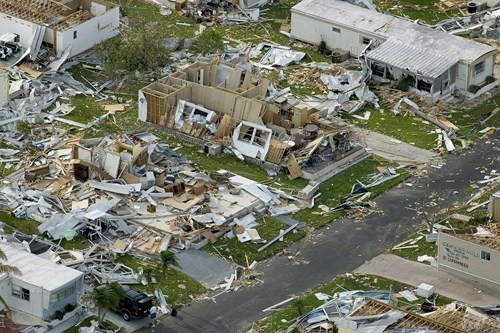
Hurricane Preparedness
Hurricanes are dangerous and can cause major damage because of storm surge, wind damage, rip currents, and flooding. They can happen along any U.S. coast or in any territory in the Atlantic or Pacific oceans. Storm surge is historically the leading cause of hurricane-related deaths in the United States.
- Eastern Pacific Hurricane Season: May 15 - November 30
- Atlantic Hurricane Season: June 1 - November 30
- Central Pacific Hurricane Season: June 1 - November 30
In light of the current COVID-19 challenges, it is more important than ever to prepare to stay safe during a tropical storm or hurricane. Recommended steps include: signing up for local weather alerts, keeping stock of emergency supplies, identifying evacuation routes at home and work, keep up-to-date with Centers for Disease Control (CDC) updates, and creating an emergency communication plan to stay in touch with friends, family, and coworkers. Know your local emergency shelters and the best routes to get there if you need to.
Make a Plan
You may need to evacuate your home quickly and travel to a safe location outside the affected area. Check if you can stay with family or close friends outside the affected area. Ask if they are experiencing COVID-19 symptoms or are at higher risk for serious illness. If yes, make other arrangements such as a hotel or shelter, and remember to account for pets as some hotels and shelters may not be able to accommodate four-legged friends. Ask yourself the following questions when making your plan:
- Have you signed up for local alerts? – Listen to local area radio, NOAA radio, or TV station for weather information and the CDC for updates on emergency plans due to the COVID-19
- How will you get there? – Know your evacuation routes and destinations, ask a friend in advance if you need to share transportation, and keep your gas tank full
- How will you contact each other? – Establish a communication plan with family and close friends before, during, and after a tropical storm or hurricane
Build Emergency Kits
Based on guidance from public health emergency authorities, you may be advised to stay at home or evacuate, so it is important to prepare for both scenarios. A Stay-at-home Kit should everything you need to be able to stay at home for at least two weeks, including food, water, cleaning and disinfectant supplies, soap, paper products, and personal hygiene items. An Evacuation Kit will be a smaller version of your stay-at-home kit and should be enough to last you and your family for 3 days:
- Water, food (pet food and extra water for pets), first aid kit
- Cleaning and disinfectant supplies (tissues, hand sanitizer with 60% alcohol, disinfection wipes)
- Personal hygiene items
- 1-Month supply of prescription and over-the-counter medications (cough suppressant, fever-reducing, etc.)
- Infant supplies (formula, bottles, diapers, wipes)
- Radio, Cellphone, including portable backup batteries
- Flashlight, Matches
- Copies of Critical Documents, Cash, or traveler’s checks
Know the Difference! – Hurricane Watch vs. HurricaneWarning
Have several ways to receive alerts. Download the FEMA app and receive real-time alerts from the National Weather Service for up to five locations nationwide. Sign up for community alerts in your area and be aware of the Emergency Alert System (EAS) and Wireless Emergency Alert (WEA)- which requires no-sign up.
Hurricane WATCH |
|
Hurricane WARNING |
|---|---|---|
|
Hurricane conditions are possible. Prepare your home, review your evacuation plan and ensure your emergency kits are ready. |
|
Hurricane conditions are expected. Complete storm preparations and follow directions from emergency authorities. |
You and your loved one’s safety is important to us! For more information on emergency preparedness, visit the American Red Cross (www.redcross.org) website.


